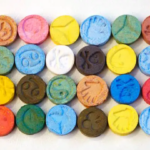New South Wales to Finally Trial Pill Testing

The first festival to participate in a New South Wales pill testing trial has been announced, following recommendations stemming from the state’s drug summit.
The Yours and Owls festival in Wollongong this spring will be the first festival in New South Wales to partake in pill-testing—a potentially life-saving harm reduction measure that has proven in a number of countries to reduce overdose at events such as music festivals.
12 Month Trial
This is the first step in a one-year trial by the government with a focus on reducing deaths caused by illicit drugs. The anonymous program allows attendees to bring a sample of drugs they plan to ingest at the festival, ensuring qualified professionals can test the sample for adulterants and harmful substances.
This isn’t to say that it is encouraging drug use or “allowing” all festival attendees to consume drugs, but it does make it known to all involved that there are inherent risks of drug use. On the other hand, it recognises the prevalence of drug use, especially in certain situations (ex, music festivals, concerts, nightlife scenes, etc.) and attempts to mitigate the harmful side effects of consuming drugs.
Co-founder of the festival Ben Tillman noted that he was extremely enthusiastic about the new announcement, which focused on ‘harm minimisation strategies that have been successfully implemented in many countries overseas for the past twenty years.’
Illicit Drugs Remain Criminalised
Health Minister, Ryan Park, noted that ‘illicit drug use remains illegal in New South Wales’, and the service will not be usable for suppliers attempting to validate the drugs they want to sell to their consumers.
Indeed, possessing a prohibited drug – also known as drug possession – remains a criminal offence in New South Wales that carries a maximum penalty of up to 2 years in prison.
NSW Drug Summit
The Minns government concluded from the NSW Drug Summit that they wanted to start implementing harm reduction intervention strategies, with a focus on providing drug users with a list of clear chemical ingredients in the substances. The Summit, led by co-chairs Carmel Tebbutt and John Brogden, was the catalyst for recommending festival pill testing.
The government will not only use the March festival as the basis for testing, but it also aims to implement the same methods in another 10-12 festivals to trial the process throughout the year.
Proven Strategies in the EU Positively Influence Aussie Outlook on Drug Consumption
Many adversaries of the pill testing methods claim that providing these services give the message to the general public that it is ‘safe’ and ‘acceptable’ to take drugs. But the real message it sends is on the contrary — it has been proven that pill testing saves lives, especially those of the youth who could possibly partake in ‘risky’ behaviours.
After a long string of deaths at Australian music festivals, politicians, government officials, and corporations finally began to listen to the need for more educated drug consumption. Following numerous European countries that have already started this proven safety method, with various studies conducted in the EU backing the hypotheses it leads to fewer overdose deaths, Australian politicians finally realised they had a lot to learn.
Before the realisation that pill testing and ‘safe’ consumption methods do not lead to an increase in drug use, there was a zero-tolerance policy in Australia that led to a rise in crime rates, an increased number of arrests, and an extremely high number of Australians, especially youth, consuming illicit substances. 8% of Australians between 20 and 29 years old used ecstasy within the last year — the exact target market for a music festival.
And the rate of consumption isn’t the only worrying issue. Australia is arguably the country with the MOST need to use pill testing strategies, as studies conducted on the ingredients of ecstasy pills in Australia were shown to have the highest concentration of ‘unknown ingredients’ and ‘deadly substances’ when compared to other European and North American countries.
Case Studies from the EU
The numbers don’t lie. Studies have shown that pill testing has garnered an extremely positive reaction and results in the European Union, with countries such as the Netherlands, Austria, Switzerland, and Belgium implementing government-sanctioned services since the 1990s. This success should reassure festival-goers and stakeholders about the effectiveness of the strategy.
All countries have proven the same fact—there has been a reduction in overdose deaths. Other non-EU countries, like the United Kingdom and Canada, created non-profit organisational strategies to mimic the success in Europe.
Currently Being Used in the ACT
And pill testing isn’t only successful overseas — it has proven to be a wild success on Australian soil already, which brings into question why NSW and other states have taken so long to implement the same risk prevention strategies.
The ACT initially faced backlash and a ‘teething process’ during its first government-sanctioned pill trial in 2018, but two have gone off without a hitch in the ACT since 2022. The second pill testing trial was a huge success, showing that over 230 festival goers to the Groovin the Moo event took advantage of the service. This success should instil optimism about the potential success of similar trials in NSW.
Those who used the service were able to benefit from the identification of the chemical ingredients in their pills, with the primary substance identified as MDMA — but also with seven samples containing n-ethylpentylone, which has been attributed to numerous overdoses around the world. This reassures festival-goers about the safety benefits of the service.
Dr Caldicott, a consultant at the Calvary Hospital ER in Canberra, noted that the initiative has almost ‘no negatives’, with the pill-testing program nearly doubling in effectiveness since the festival’s first year.
Victoria Trials Pill Testing
Prior to NSW announcing its first pill-testing initiative at the festival, Victoria also decided to trial the same initiative in its state. Instead of going to just one festival or concert in the state, Victoria decided to create a mobile pill-testing service to keep young people safe throughout the summer months.
Mary-Anne Thomas, the Minister for Mental Health, noted that they tested more than 600 samples of ketamine, cocaine, and MDMA to screen for unwanted substances. Furthermore, they were able to hold conversations with 700 festival goers to educate them on drug use, safe consumption methods, and awareness of ingredients within their drugs, leading to almost 40% of festival visitors saying they would cut back on drug use.
The testing helped users realise that the drugs were not what they thought they were, provided education on how drug use would interact with their current medical conditions, and how drug use would interact with preexisting mental health conditions and prescription medication consumption.
Effective in Detecting Fentanyl and Nitzenes
Two of the scariest substances that can be found in drugs within Australia are fentanyl and nitazenes — a substance that can be 50 times stronger than the deadly fentanyl when laced in an illicit substance.
Nitazenes are commonly found in drugs such as heroin and ketamine, and have led to a sharp increase in deaths within the United Kingdom and the U.S. since 2019. Although they vary in strength, they are an extremely potent and deadly additive to drugs that can lead to accidental deaths. Similarly, fentanyl is a synthetic drug that is 50 times stronger than heroin, reducing the time for medical intervention after ingestion.
Fentanyl self-testing with supervised injection sites and pill testing are two common methods that can be used to stop overdose deaths for two of the most deadly additives to drugs — part of the reason why 76% of Australians who died of an opioid overdose in 2016 had deaths attributed to pharmaceutical opioids.
The significant increase over the decade between 2007 and 2016 brought about the sudden push for pill testing — and is a glaring problem that shouldn’t be overlooked. The rate of deaths from synthetic opioid use, opioid-induced deaths, and heroin all increased significantly between 2007-2016, with 85% of opioid deaths considered accidental.
The majority of opioid deaths are accidental, showing how the need for pill testing across Australia can help recreational drug users stay safe and come home from a festival alive.






